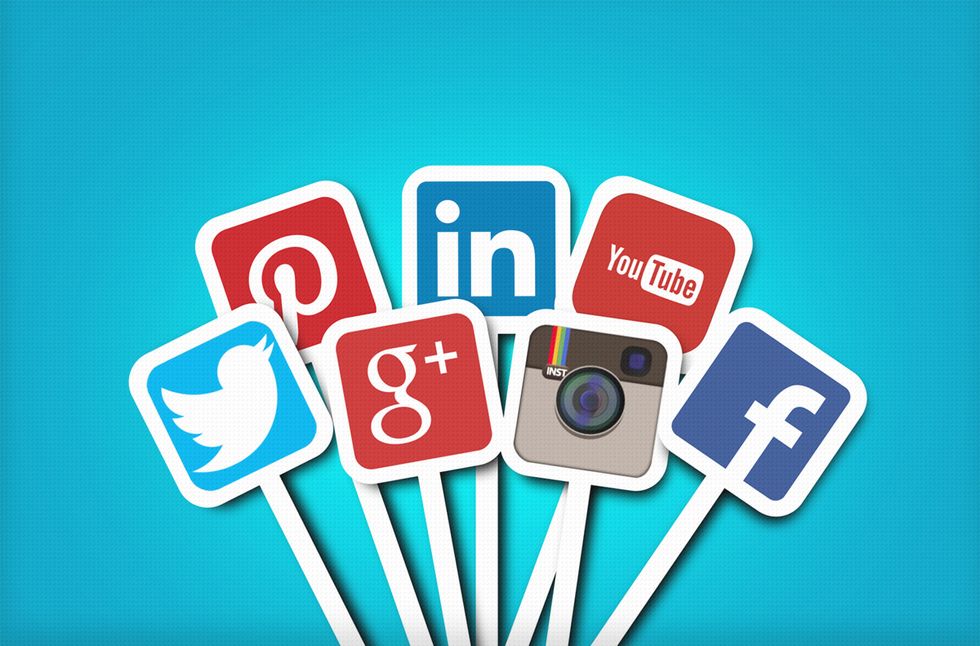As I write this, the news trending on Twitter is that Louis Tomlinson and Zayn Malik (both former members of One Direction) are friends again. Meanwhile, the top story in the New York Times is, “Leak Investigations Triple Under Trump, Sessions Says.”
It is incredible that this form of media allows people to discuss their opinions and beliefs in a place where others can respond with their perspectives. But rather than trying to understand others’ views and engage in civil discourse, users often attack one another for having opposing ideas. It doesn’t mitigate the issue when our current President prods his 35 million followers to believe that “Right now, we are one of the highest-taxed nations in the world” even though we’re not, and “You know we’ve gotten billions of dollars more in NATO than we’re getting. All because of me.” despite the fact that the deal was taken down in 2014. (The New York Times)
It is a struggle to engage in civil discourse when our generation has become dependent on the one-sided stories we read on social media to craft perspectives on issues instead of relying on a credible news source to challenge and balance our opinions. This invites audiences to debate what they already agree on, without fully understanding input from the opposition to why we disagree. Or even think the way we do. In addition, we have all become journalists through this medium—those reading our tweets learn from us and trust our 140 character stories to be facts if they are clever or snide enough. So the arguments we have are often not supported by real data or knowledge, but rather by what we have learned from a carefully edited selection of “others.”
The desire to be successful on social media and cultivate the most support tends to exceed the need to speak with substance. Many users publish shallow content just to accumulate a high volume of likes and shares. When people see that a certain idea has been favorited and reposted hundreds of thousands of times, it influences them to believe that this statement holds value. The aspiration to be popular on these outlets creates a superficial goal to acquire a powerful voice.
When approximately one-third of Americans use Facebook as a reliable news source, it can become difficult when you have Facebook friends across the political spectrum. The extent of what is considered "news" ranges greatly on these channels and can even significantly influence our understandings of "facts" and "truths." If we minimize reality, reality will minimize us.



 Photo by
Photo by  Photo by
Photo by 

 Photo by
Photo by  person holding black smartphone on white textile
Photo by
person holding black smartphone on white textile
Photo by  StableDiffusion
StableDiffusion
 Photo by
Photo by  Photo by
Photo by 
 roommate as a therapist
StableDiffusion
roommate as a therapist
StableDiffusion
 woman in white shirt eating pizza
Photo by
woman in white shirt eating pizza
Photo by  person holding remote pointing at TV
Photo by
person holding remote pointing at TV
Photo by  person holding assorted clothes in wooden hanger
Photo by
person holding assorted clothes in wooden hanger
Photo by  a couple of
a couple of  friends cleaning apartment
StableDiffusion
friends cleaning apartment
StableDiffusion
 man driving car during golden hour
Photo by
man driving car during golden hour
Photo by  bacon strips and melted cheese topped fries on oval white and blue platter with gray stainless steel forks
Photo by
bacon strips and melted cheese topped fries on oval white and blue platter with gray stainless steel forks
Photo by  selective focus photography of eyeshadow palette
Photo by
selective focus photography of eyeshadow palette
Photo by  brown wooden framed white padded chair in between green indoor leaf plants inside bedroom
Photo by
brown wooden framed white padded chair in between green indoor leaf plants inside bedroom
Photo by  women forming
women forming  taking
taking  man in red polo shirt pouring wine on clear wine glass
Photo by
man in red polo shirt pouring wine on clear wine glass
Photo by  woman in black jacket standing on road during daytime
Photo by
woman in black jacket standing on road during daytime
Photo by 
 StableDiffusion
StableDiffusion
 StableDiffusion
StableDiffusion
 student thinking i shouldnt have procrastinated all semester
StableDiffusion
student thinking i shouldnt have procrastinated all semester
StableDiffusion
 Photo by
Photo by  Photo by
Photo by  Photo by
Photo by  StableDiffusion
StableDiffusion
 StableDiffusion
StableDiffusion
 Photo by
Photo by  Photo by
Photo by 








